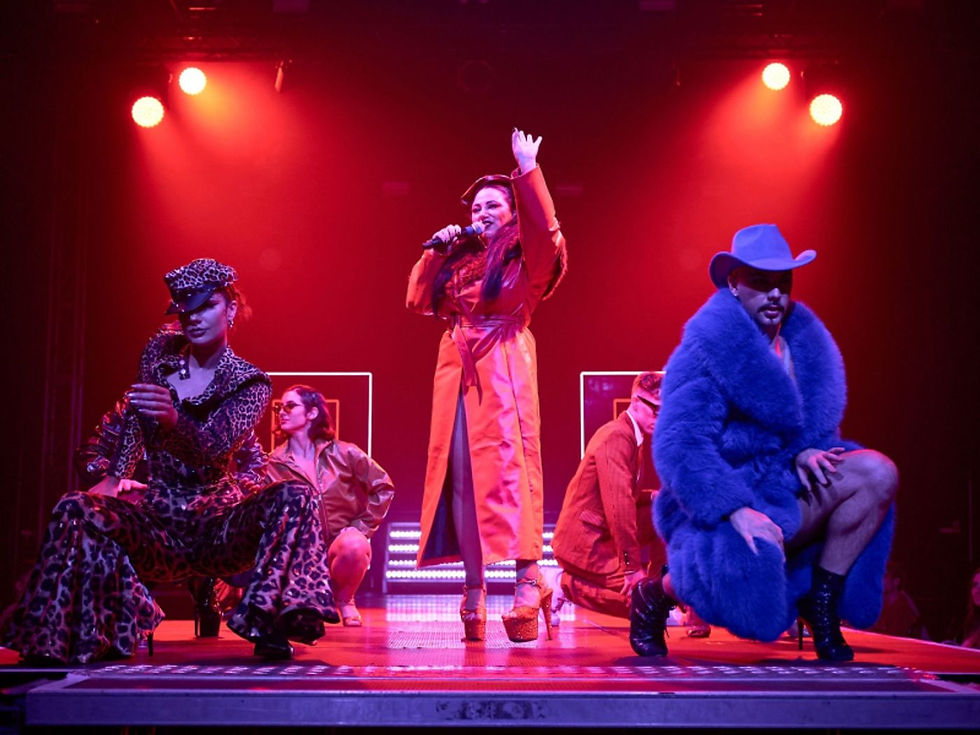Review: The Sum Of Us at Subiaco Arts Centre
- Mar 1, 2021
- 3 min read
Review By Cody Fullbrook Written almost 30 years ago, The Sum Of Us has been brought to Subiaco Arts Centre by Yirra Yaakin, capturing the lives and desires of Jeff (Matthew Cooper), a gay man in his 20’s, and his supportive, widower father, Harry (Bruce Denny).
It’s probably just the grimness of its darkly lit poster, but The Sum Of Us may just be the most surprisingly funny show I’ve seen in a while. I can’t call it anything but a comedy, and clearly the audience thought so too, as almost every minute resulted in a chair-shaking laugh. Granted, hardly any jokes were more than gay sex innuendos, but Harry’s sweet, carefree, remarks about his son’s life would melt the coldest heart and flip the most crescent frown.
Bruce and Matthew comfortably fit into their roles as father and son, and aside from a few flubbed lines, neither appear awkward or hesitant. Even when both are joined by Greg (Joshua Pether), Jeff’s possible future boyfriend, for some eating and drinking, there’s never any fidgeting with cutlery or badly timed sips.
However, from the very first line, there was something about the way the actors were speaking that took me until Act 2 to completely realize, when Joyce (Janine Oxenham), Harry’s scarcely seen love interest, performed calm, and well-paced dialogue. Every actor delivers their lines twice as fast as they should, with whole sentences squished together as if to hit the show’s timing quota. This is fatal to many monologues where an actor speaks so quickly that simple inflections never have enough time to form.
Nonetheless, every actor carries their scenes effortlessly. Special mention must be given to Bruce Denny, who, despite being almost motionless (For reasons that would spoil the show), held every audience member’s attention with an extremely long, show-closing monologue, filled with more joy and sorrow than every other scene, combined.
Whether it be Greg venting a dream to plant trees, or Jeff recounting a woman’s hysterics on a train, the entire production mostly functions as a collection of monologues laying on a thin foundation of a plot, rather than a narrative with themes sewn into the dialogue. Most blatant of all is Harry’s Christmas Day speech about personal regrets which jarringly bleeds into another speech about Jeff’s birth.
The Sum Of Us isn’t the most complicated story in the world, and it comes close to not having any stakes at all, with much of the script taking place within individual character’s heads as they stand on an often barren stage.
The set is lined with the walls of a standard, suburban house, but what catches the eye, and occupies almost the entire floor, is a massive, wooden platform. Most of the action takes place on this, with monologues being delivered to the crowd as other actors stand solemnly in the shadows. It’s pristine surface is instantly recognizable as a dance floor and, unsurprisingly, many scenes are introduced and concluded with transitional dances from actors and even crew that waltz furniture on and off.
These are understandable, given the time needed for offstage actors to change costumes for subsequent scenes, but the dances are so simplistic that they never become symbolic of anything, or more meaningful than a simple gesture. It’s literally just them dancing. This becomes suspension-breaking when Jeff and Greg suddenly lift and spin an entire couch, as if caught in some absurdly tiny tornado, or when Jeff randomly dances with a Christmas Tree angel, only to bolt offstage, then sprint back on to dance with it some more.
Appropriately, The Sum Of Us is much like Harry and Jeff themselves. Charming and sweet. And though written in the early 90’s, nothing about the show feels archaic or unrelatable. While not being deep enough for some to warrant the price and a trek to the theatre, you’re guaranteed a laugh and an “Aww”, and possibly a raised eyebrow when you notice their beer is called “Queer Beer”. No, I’m not kidding. You thought I wouldn’t notice, didn’t you Yirra Yaakin?
Image Credit: Cole Baxter














